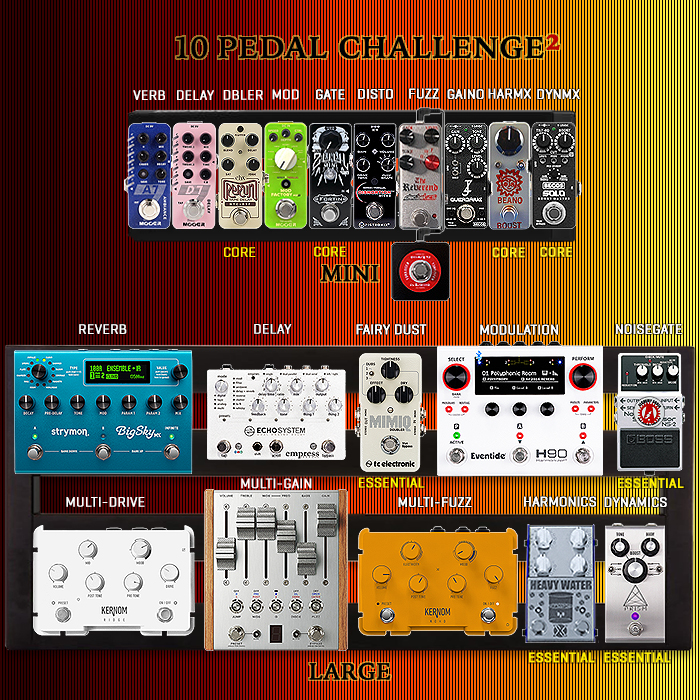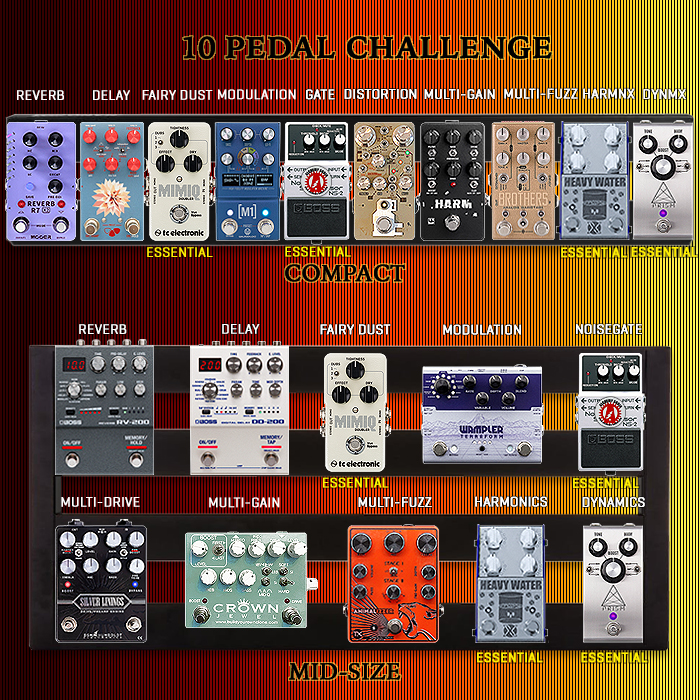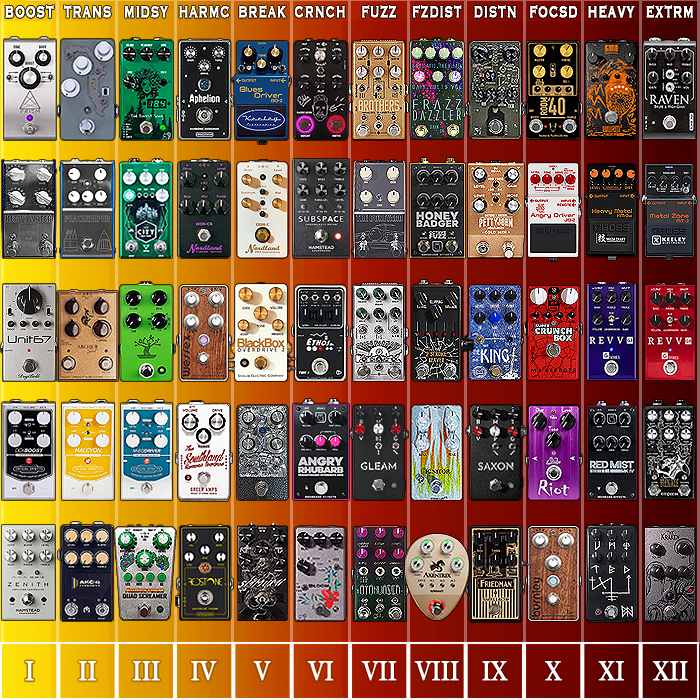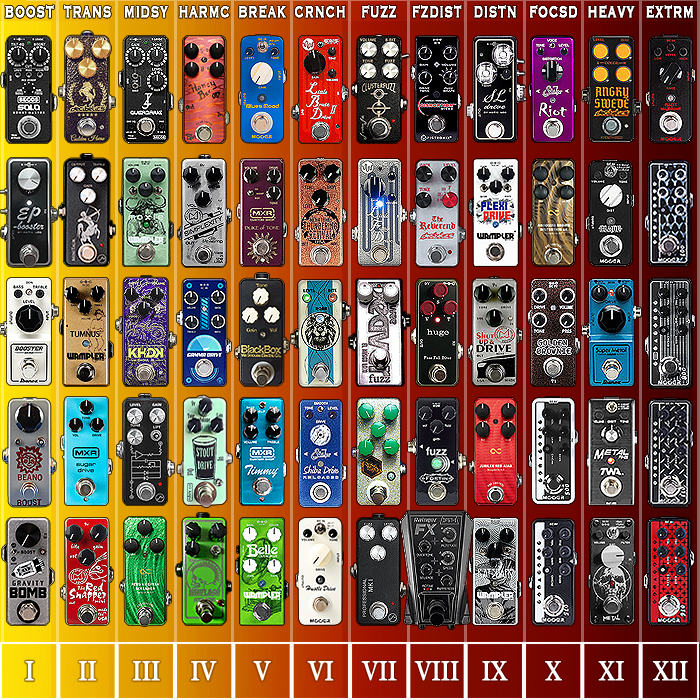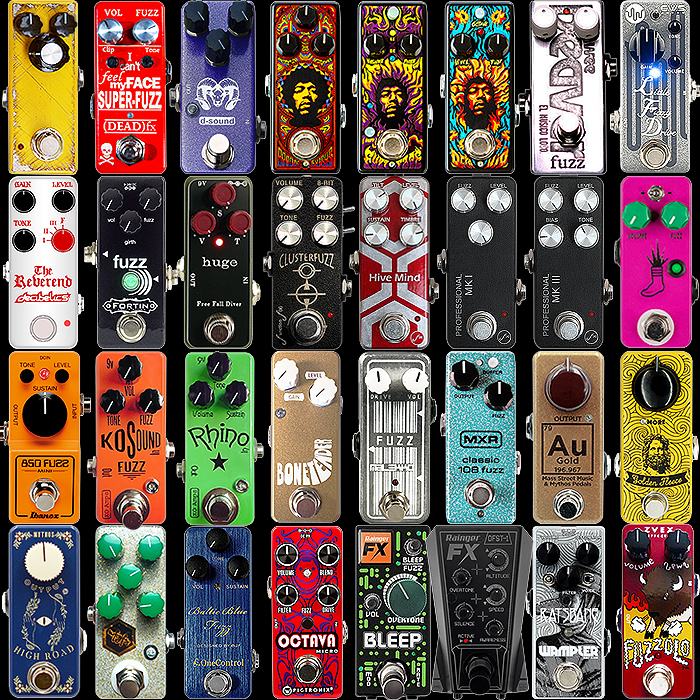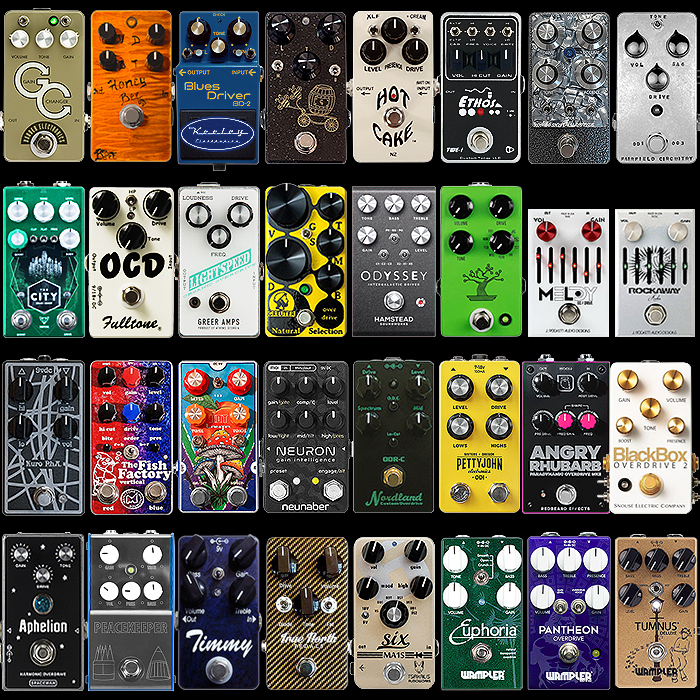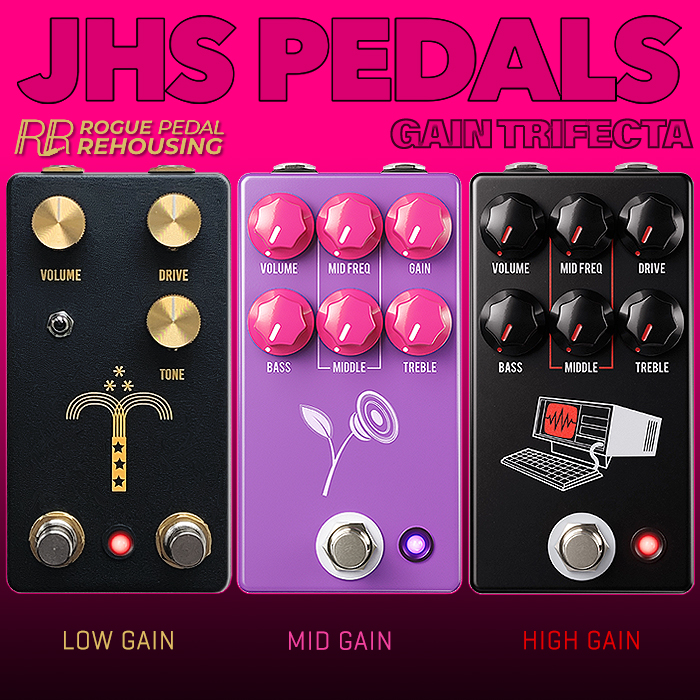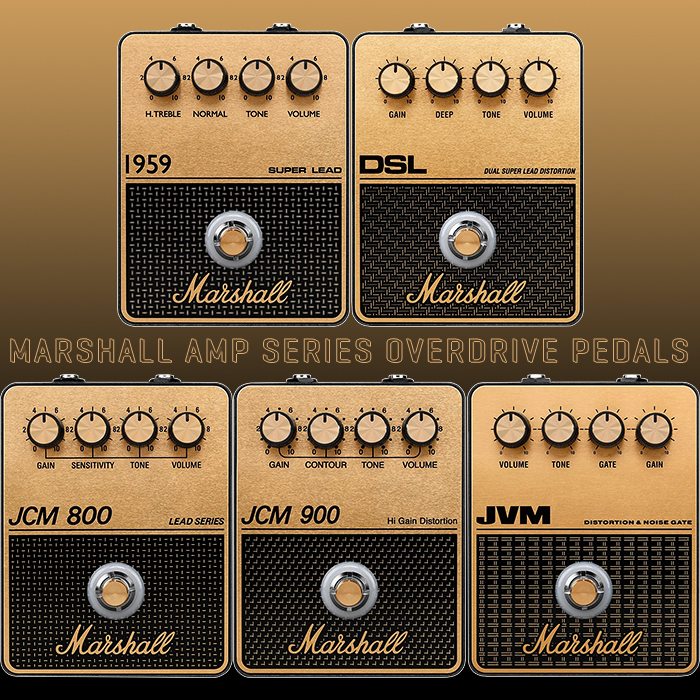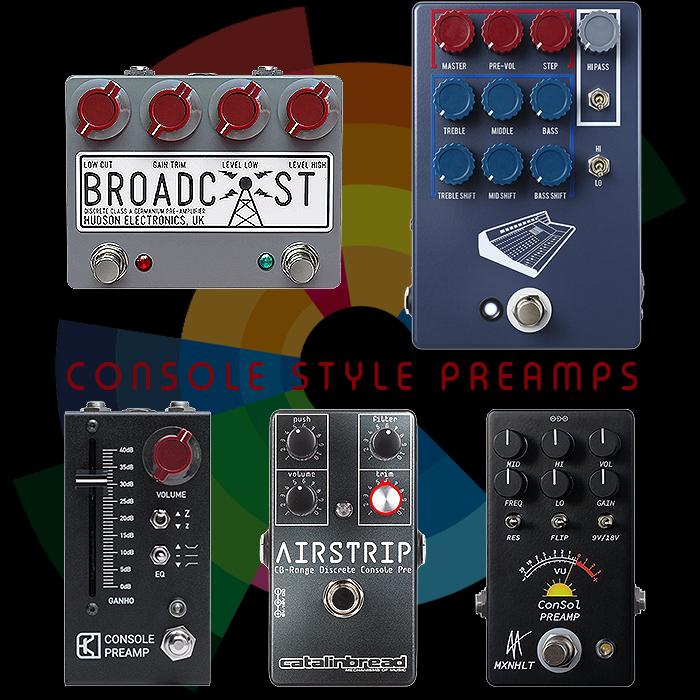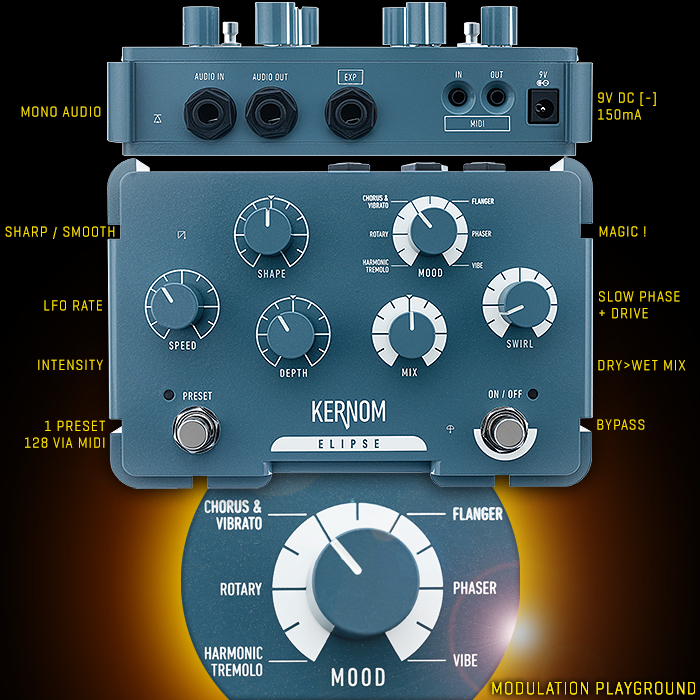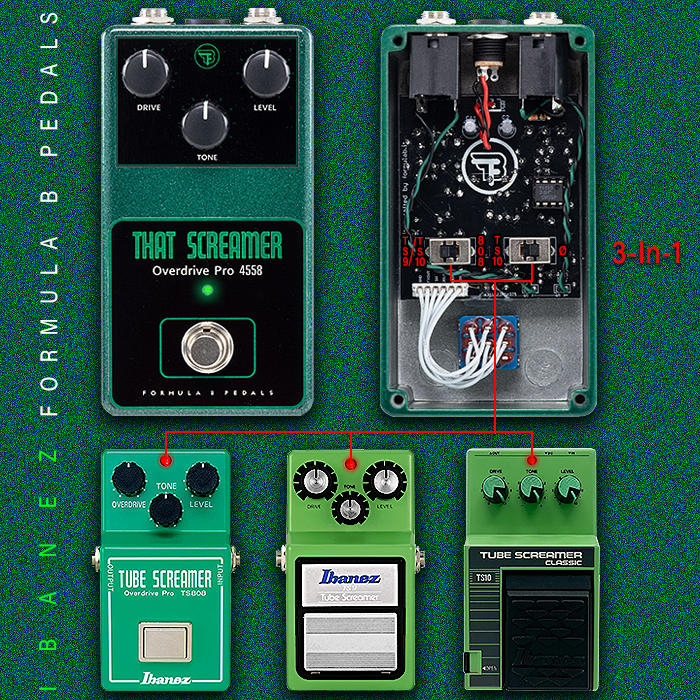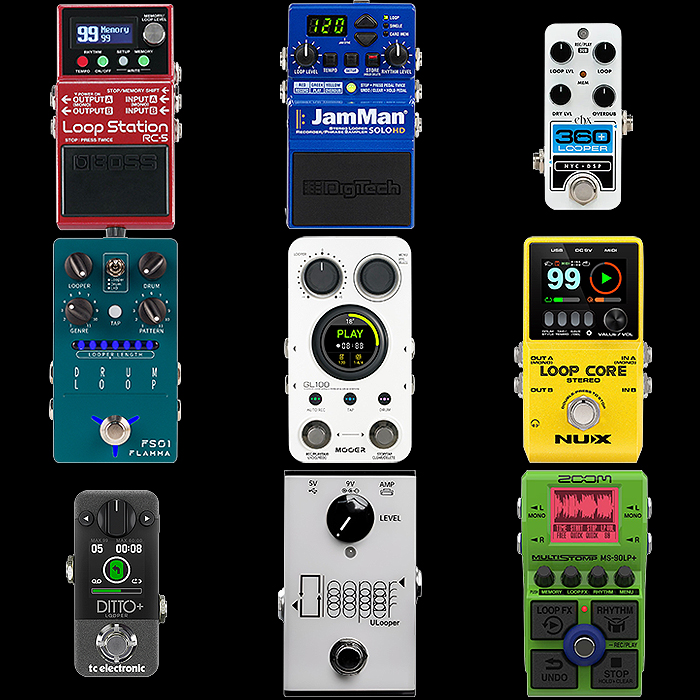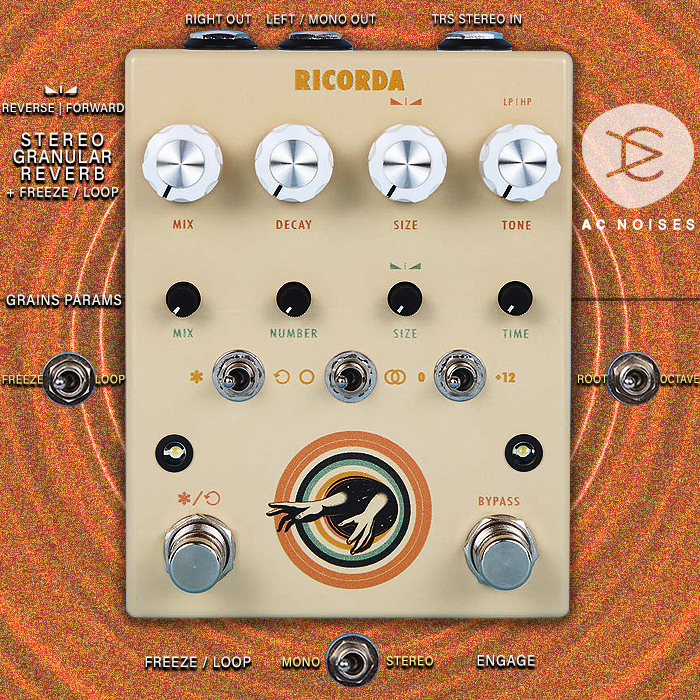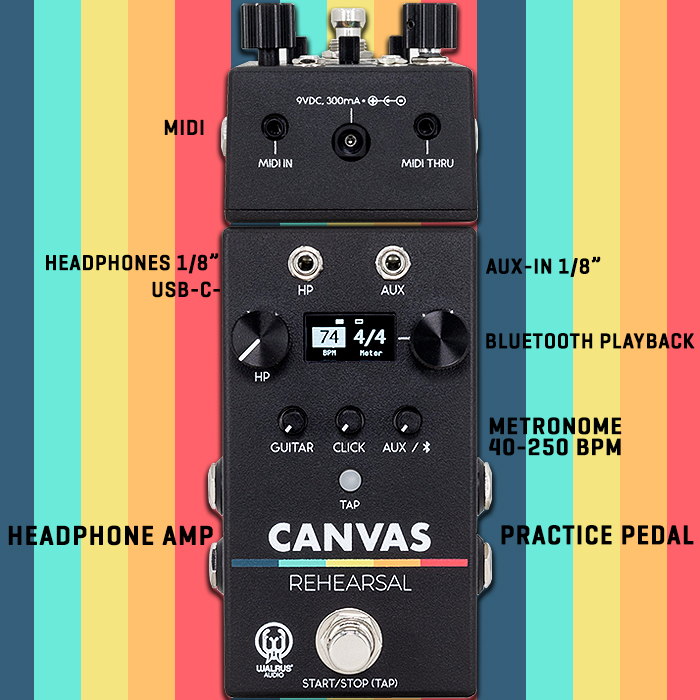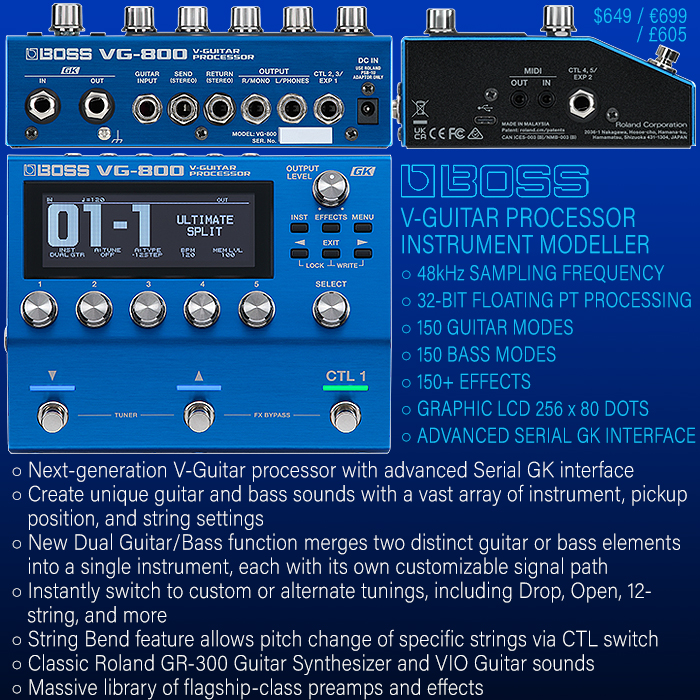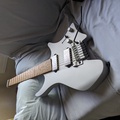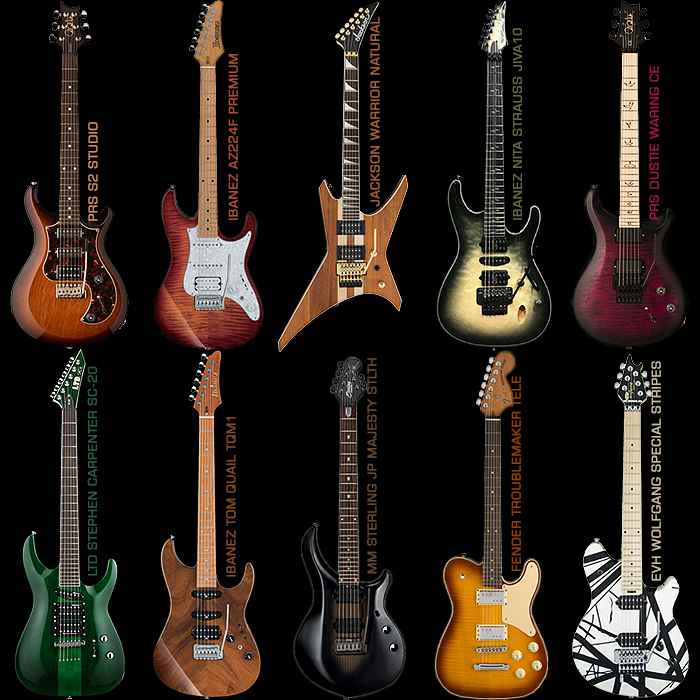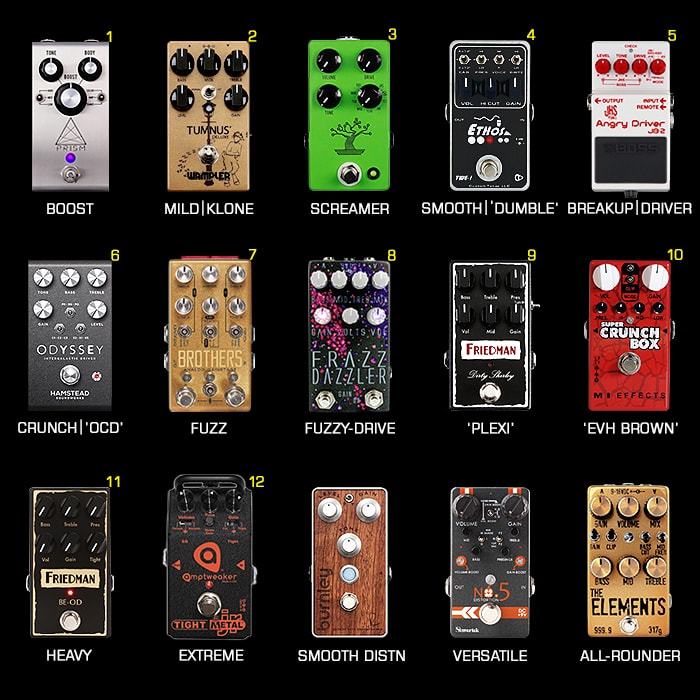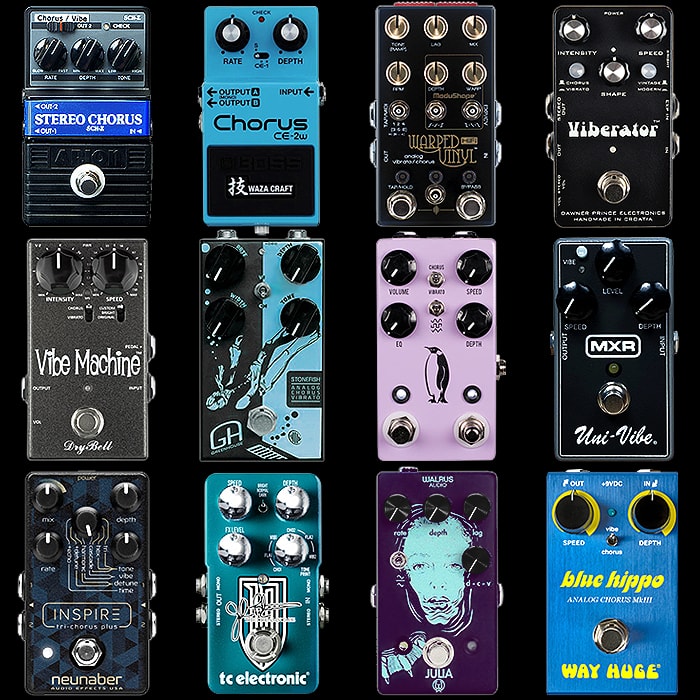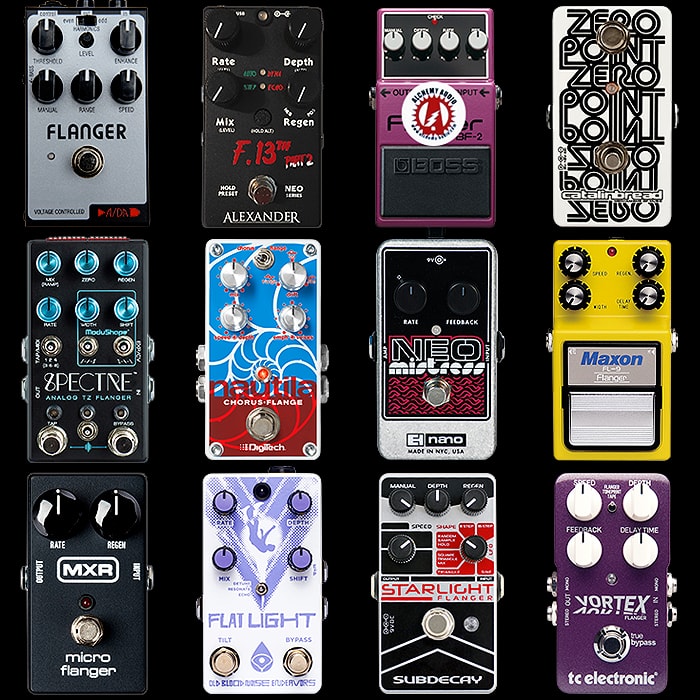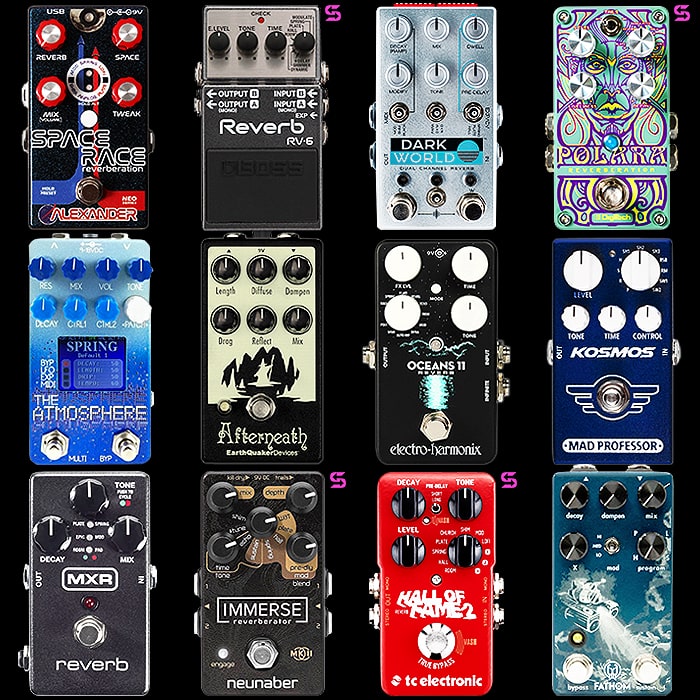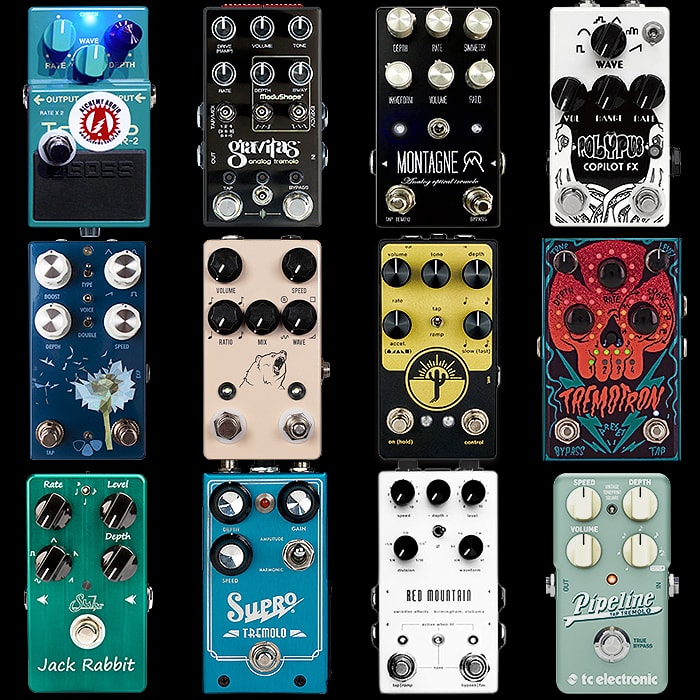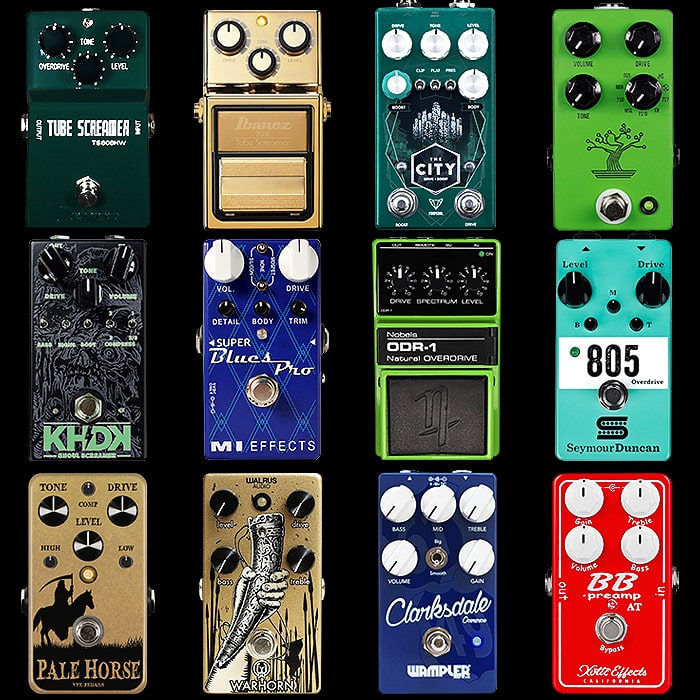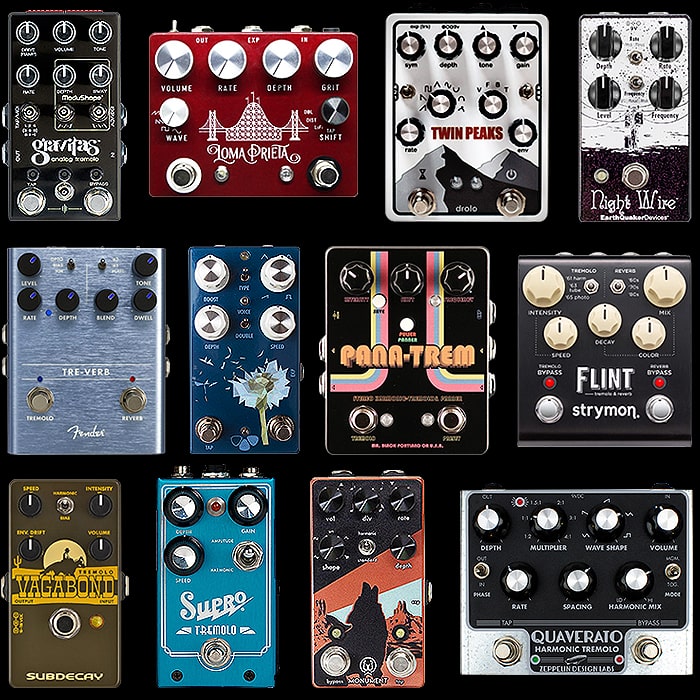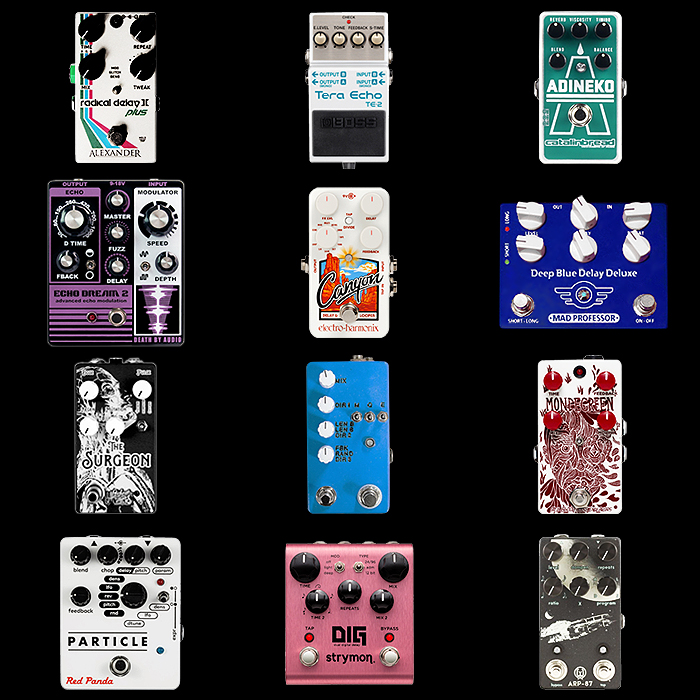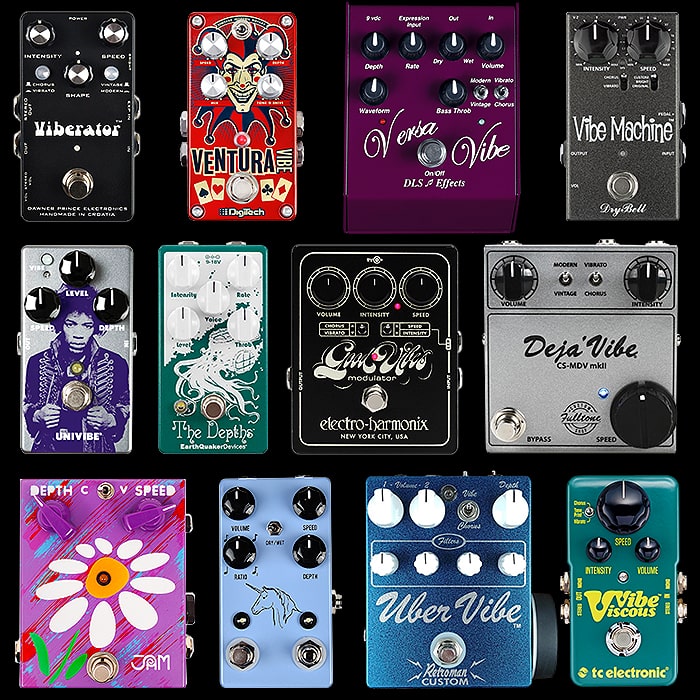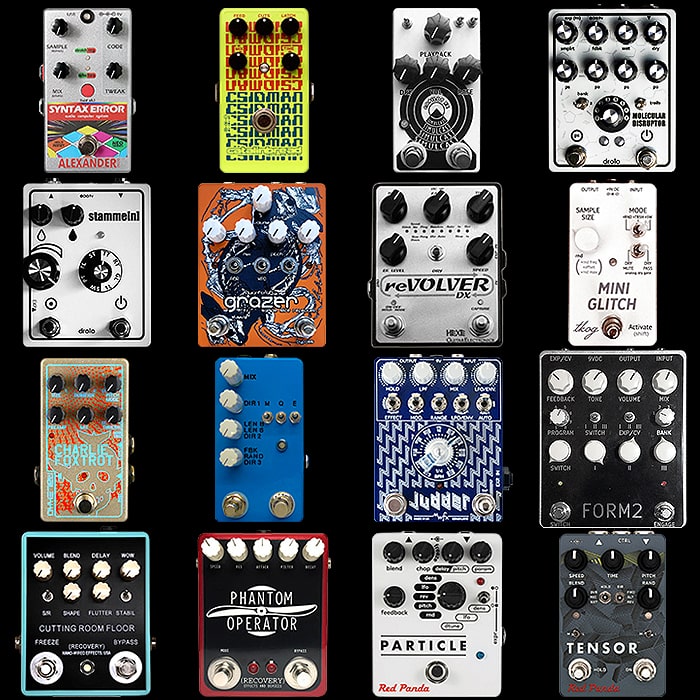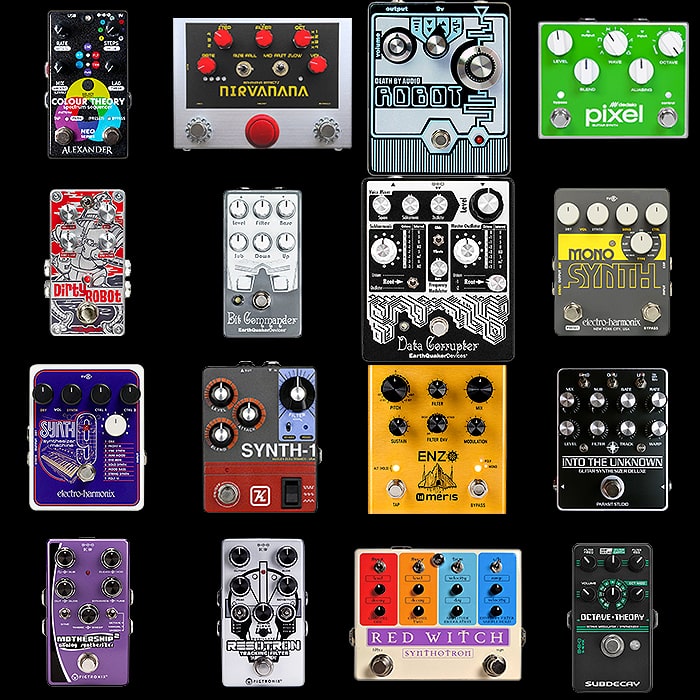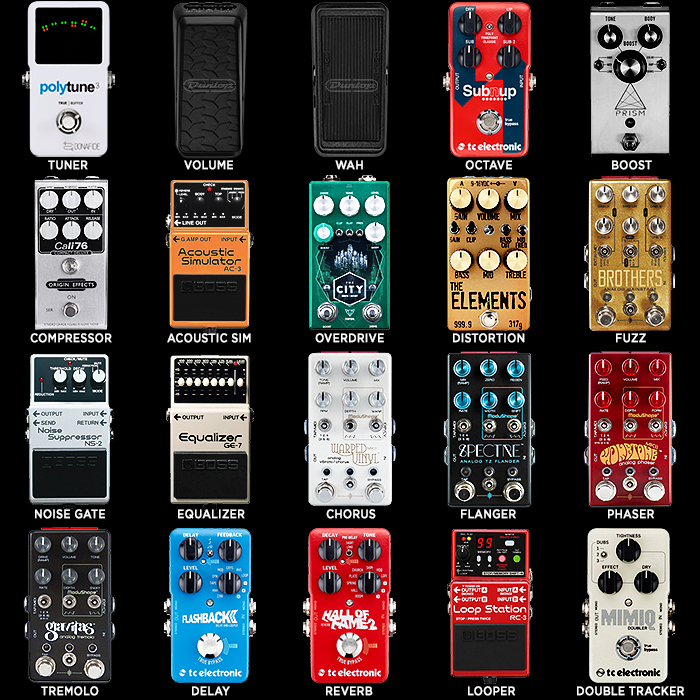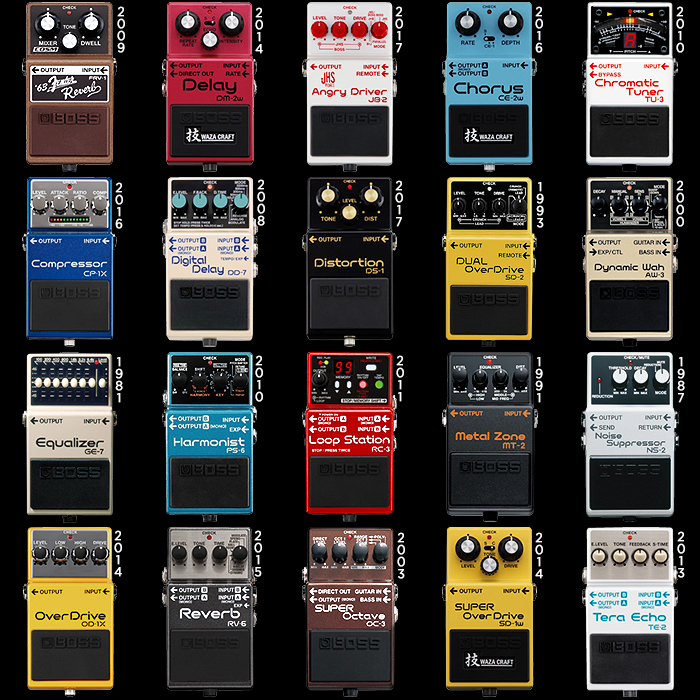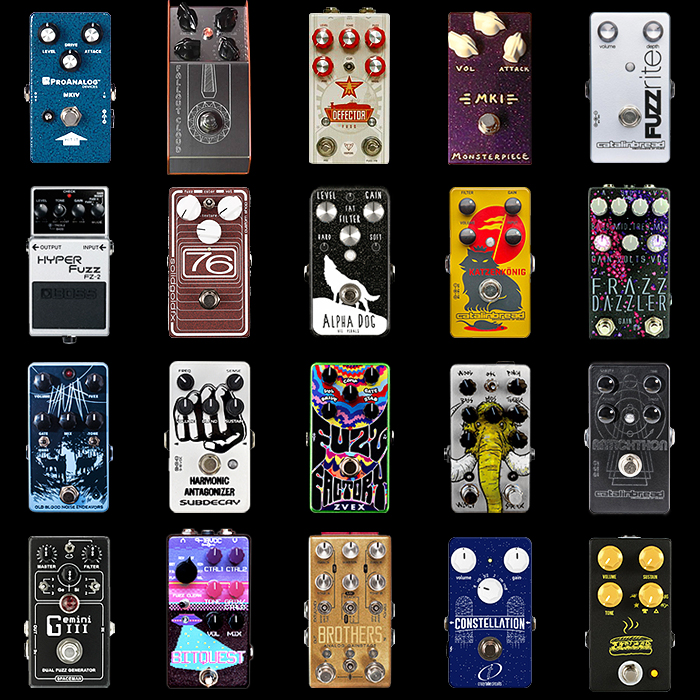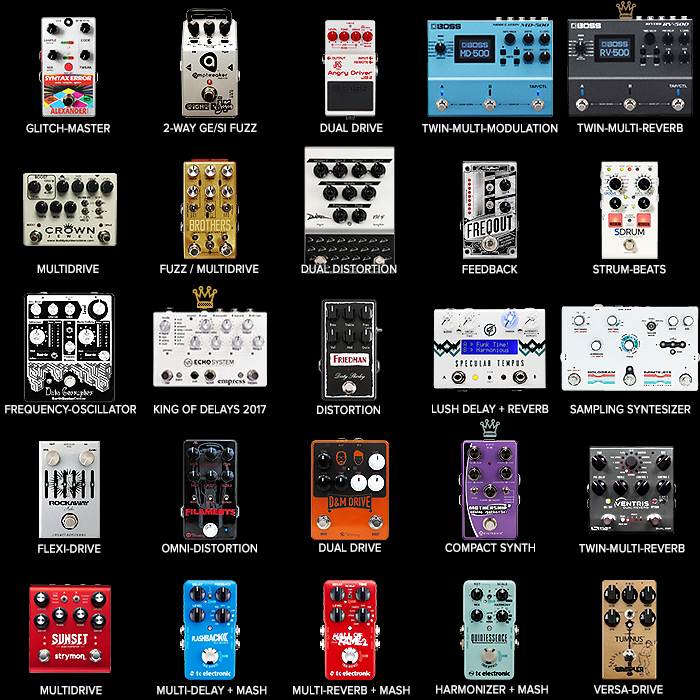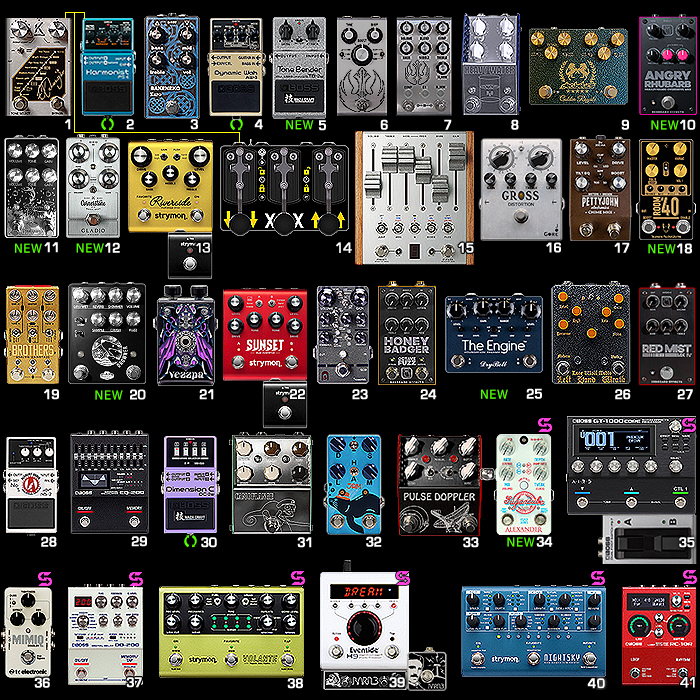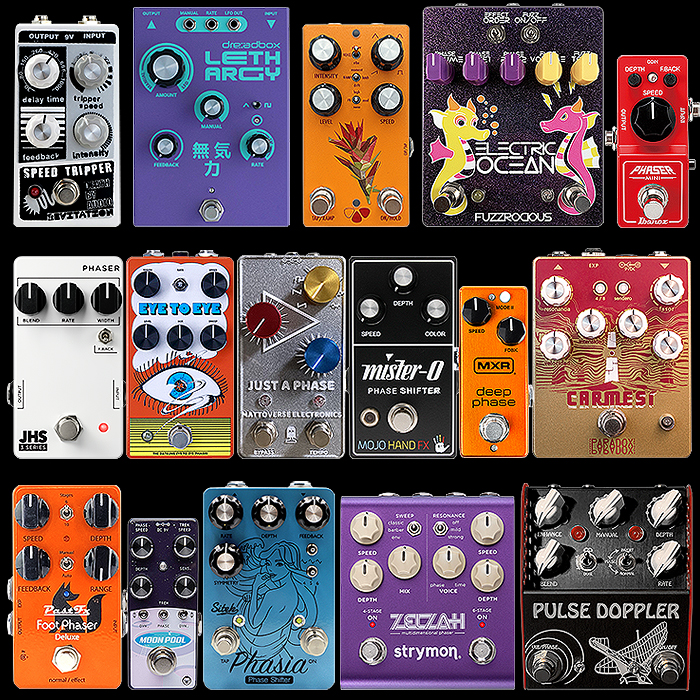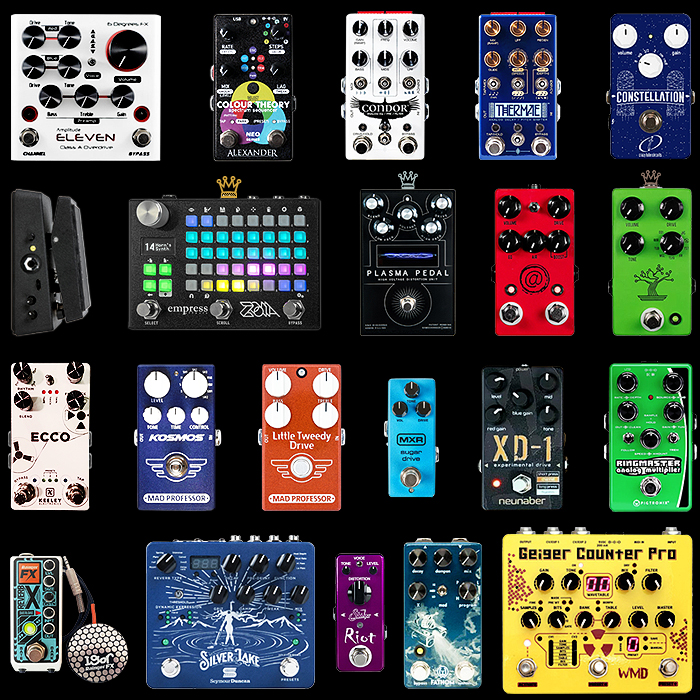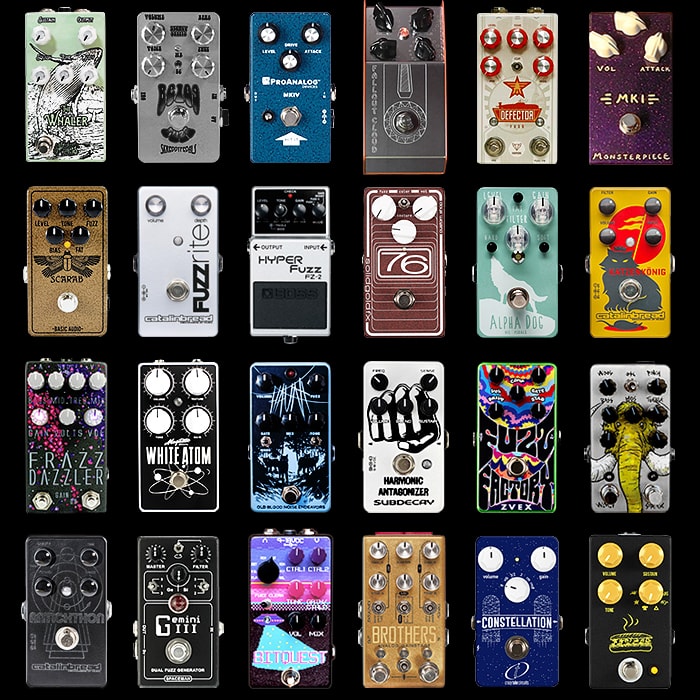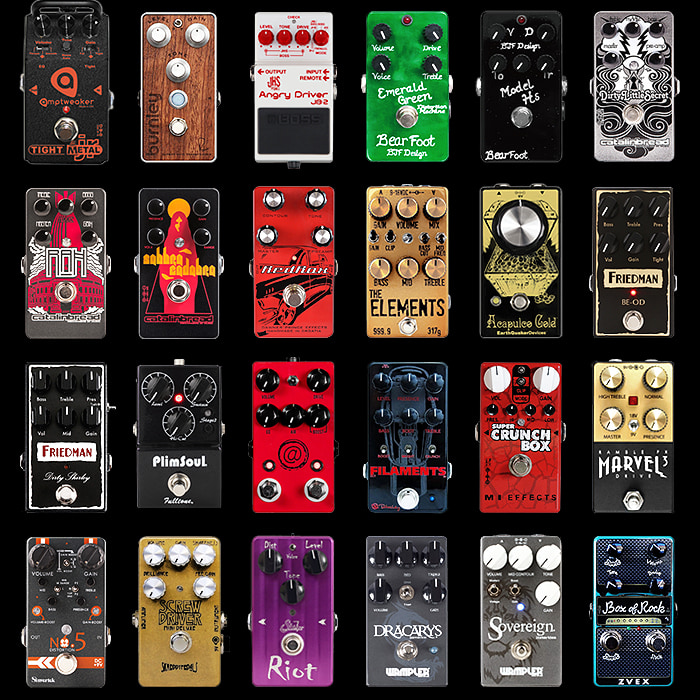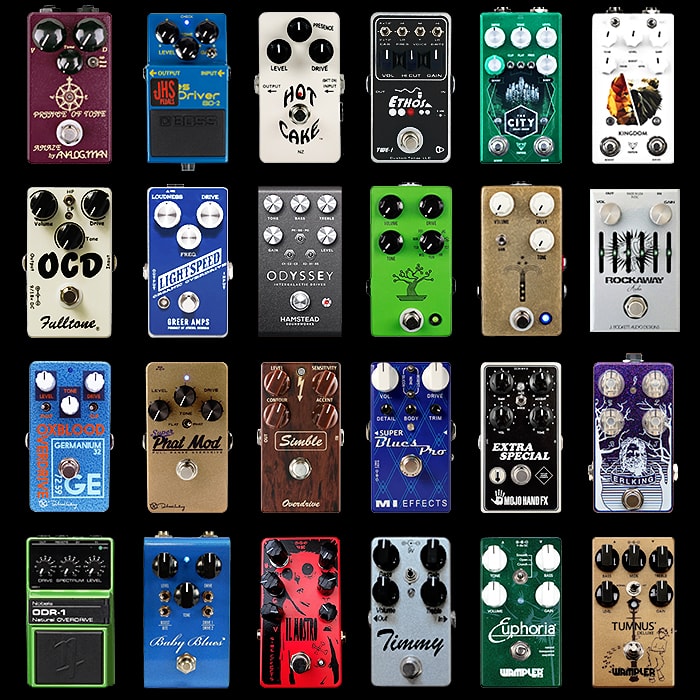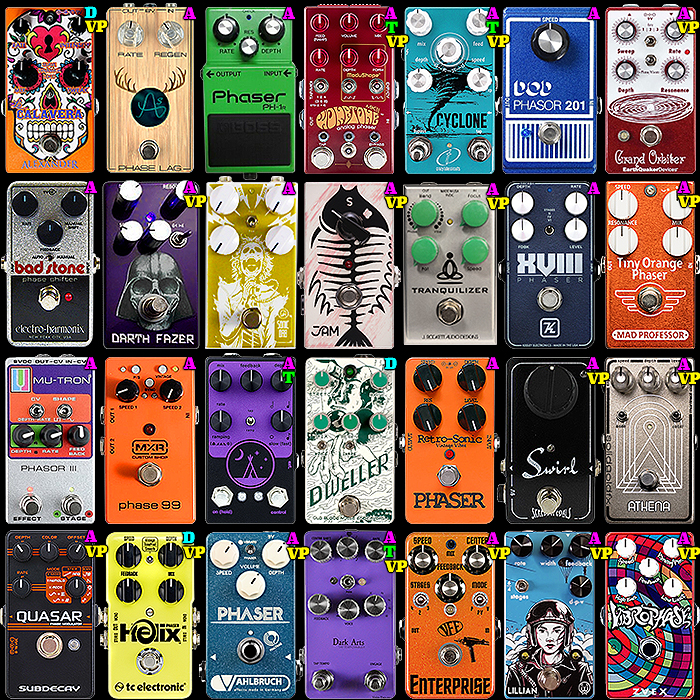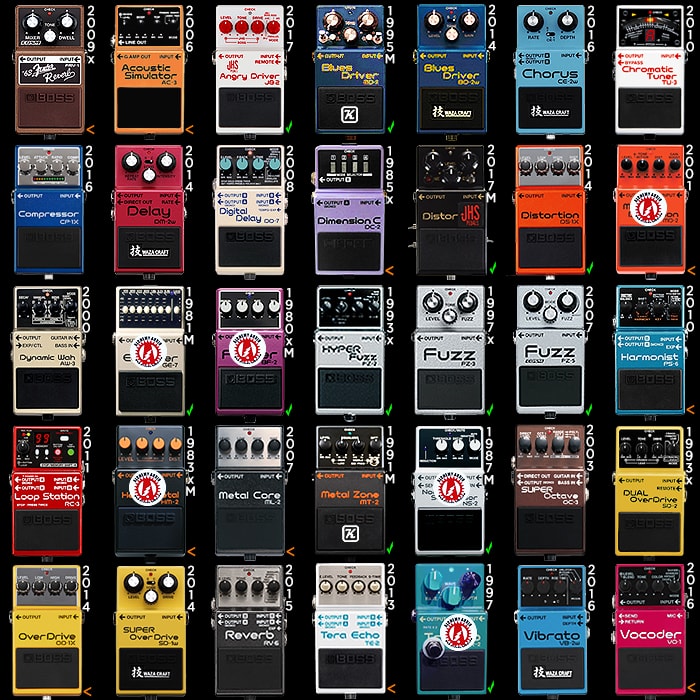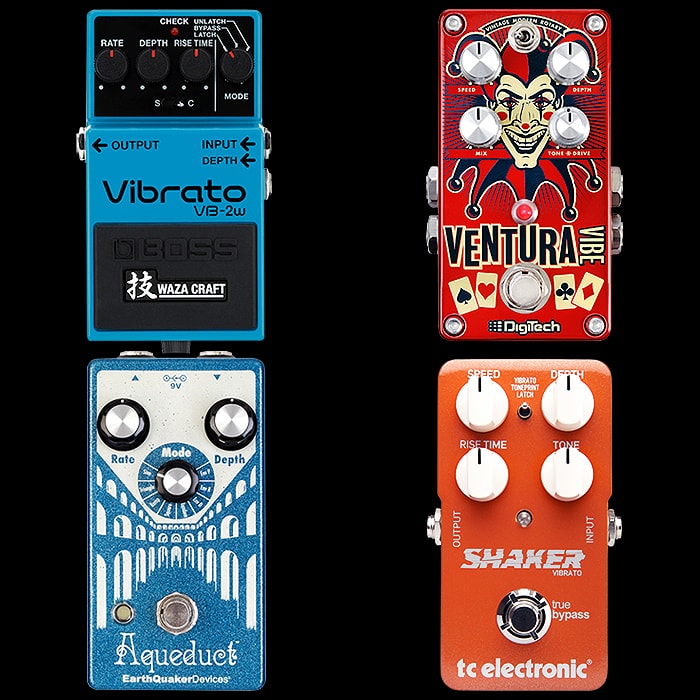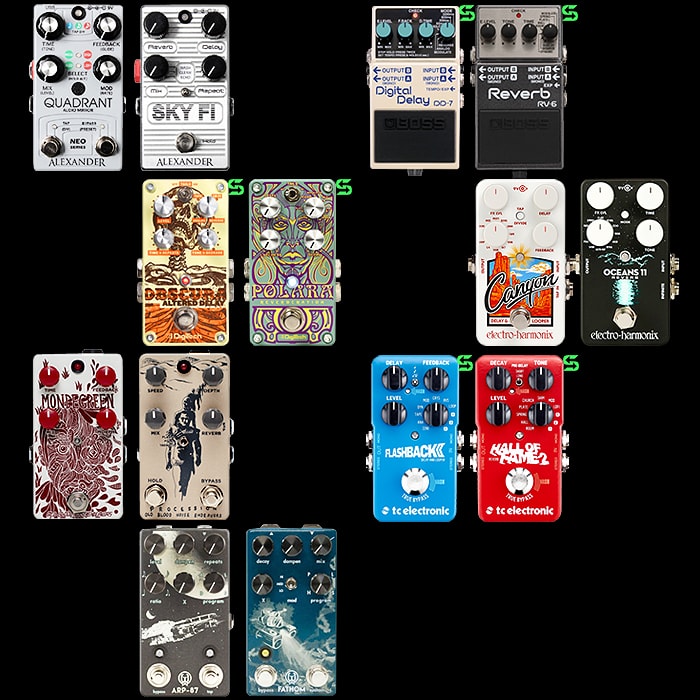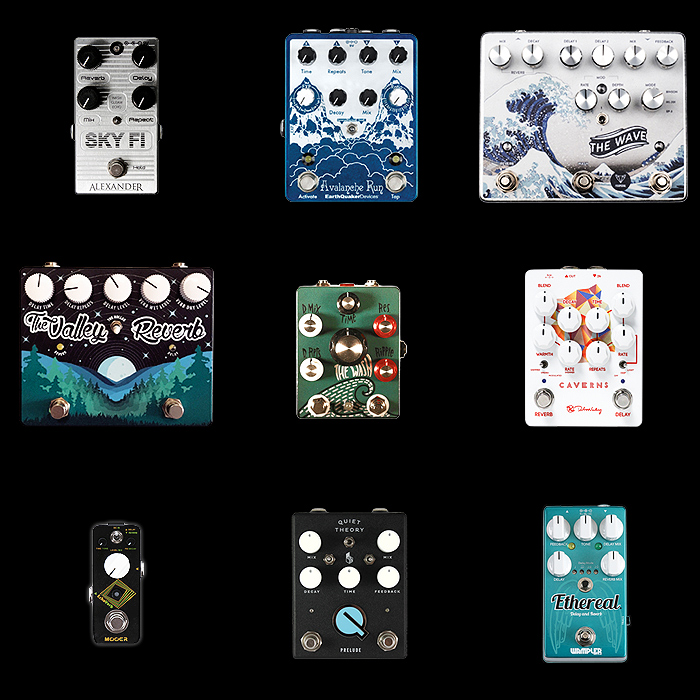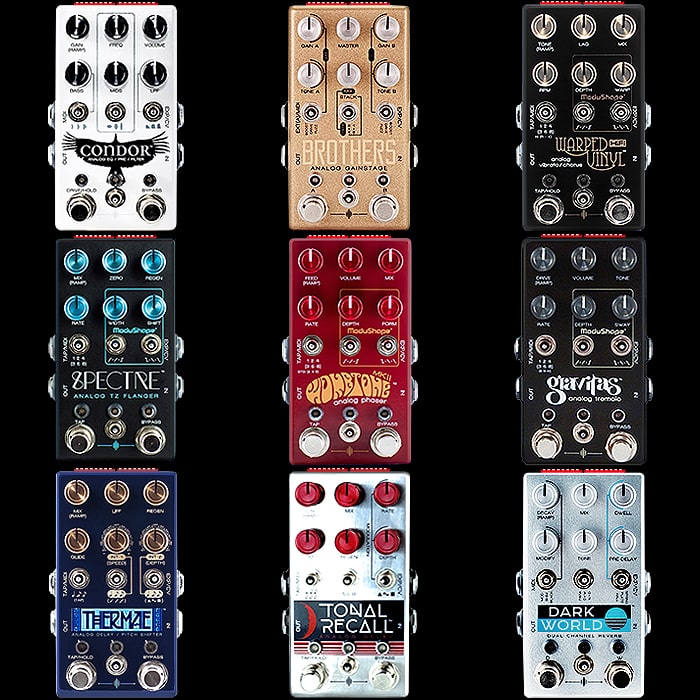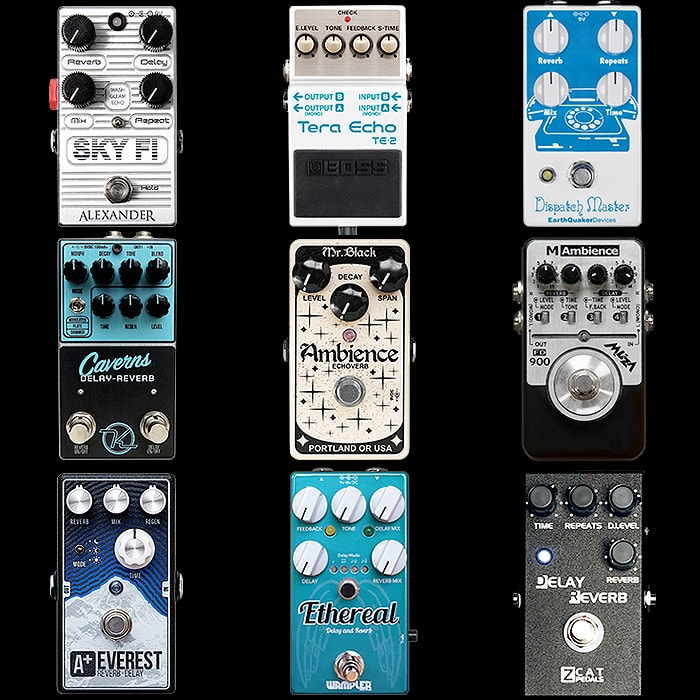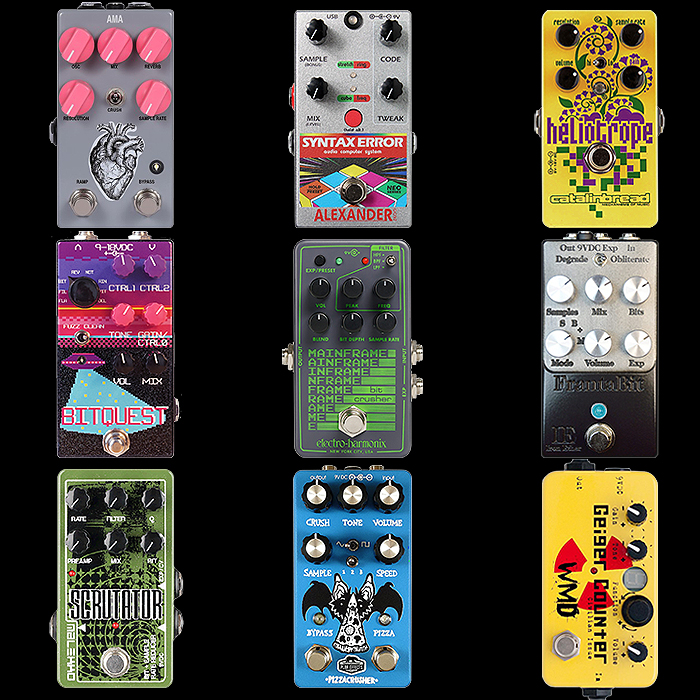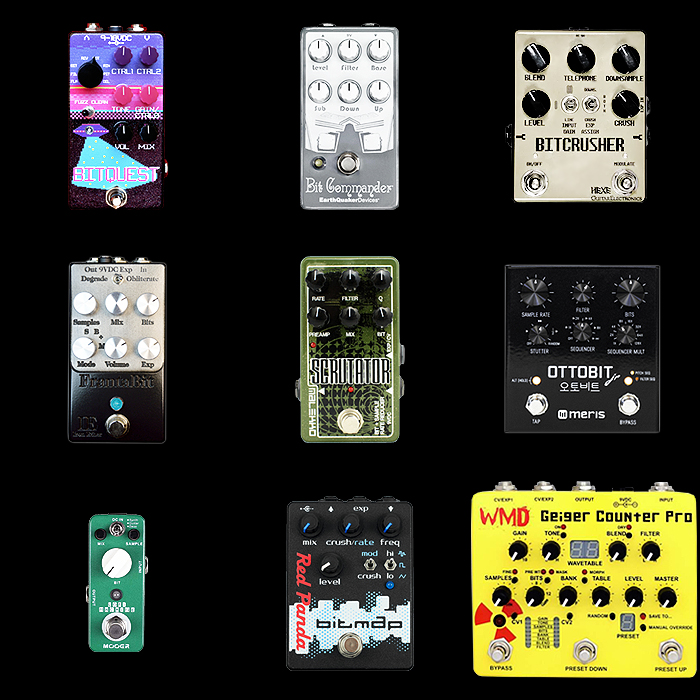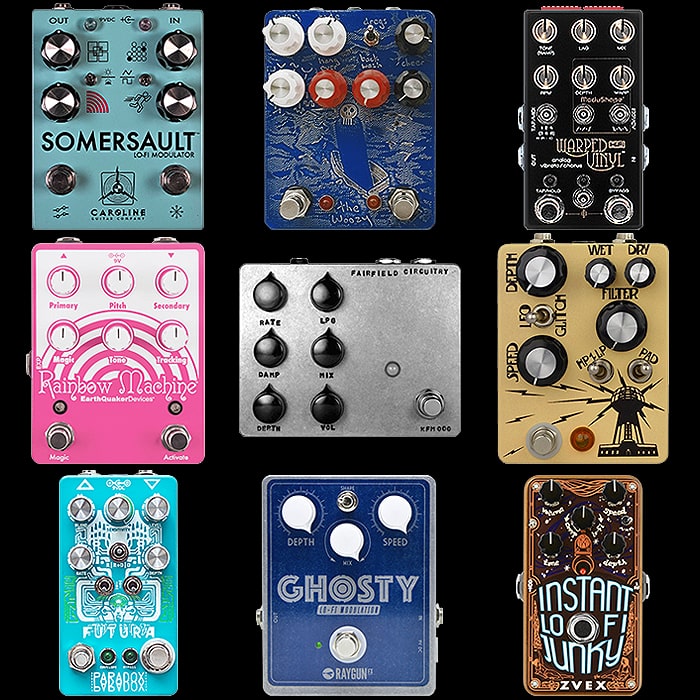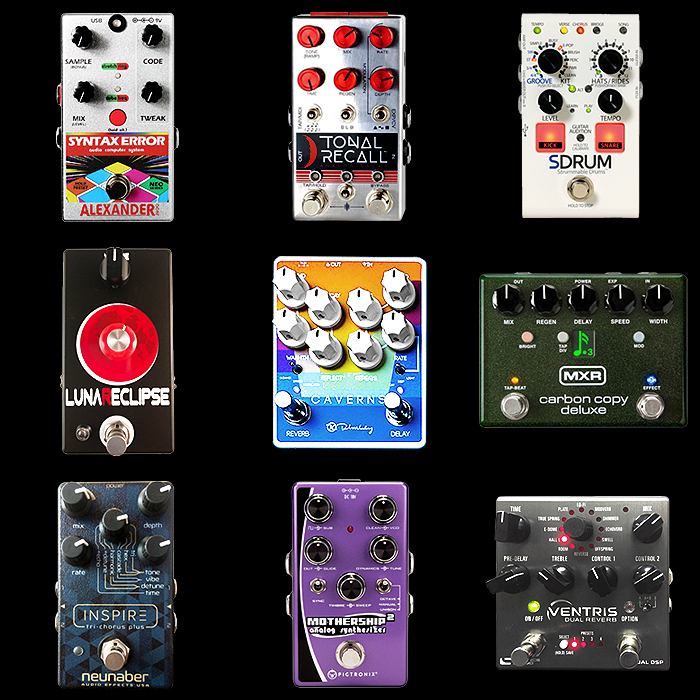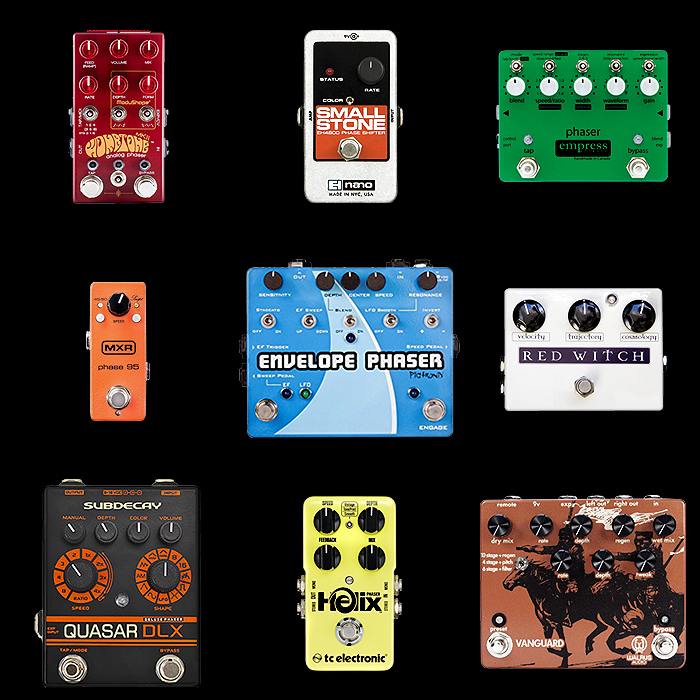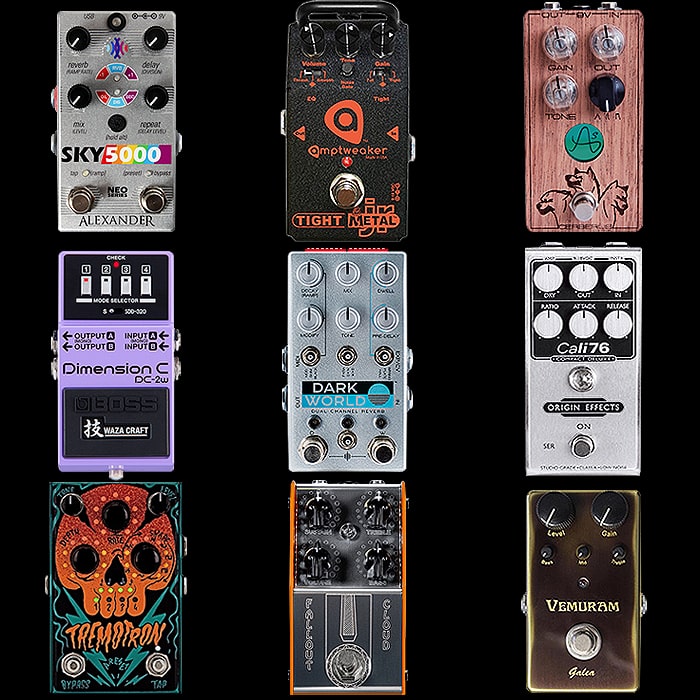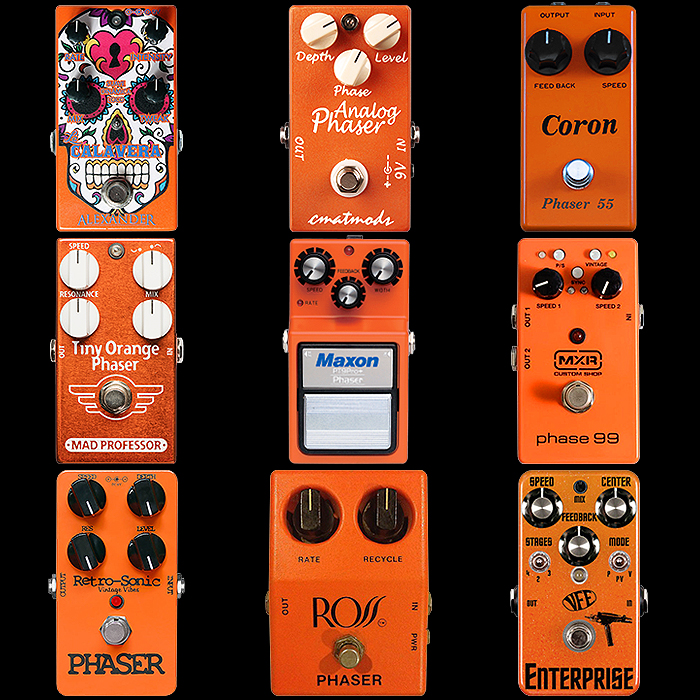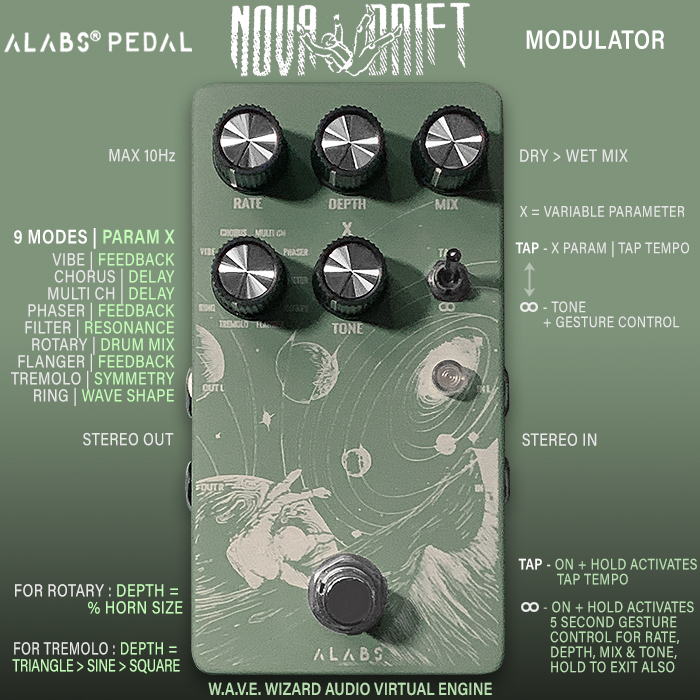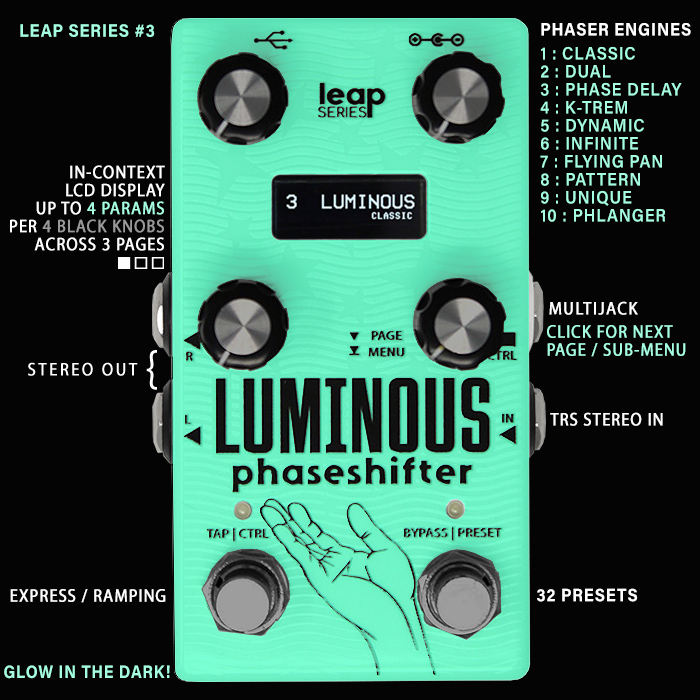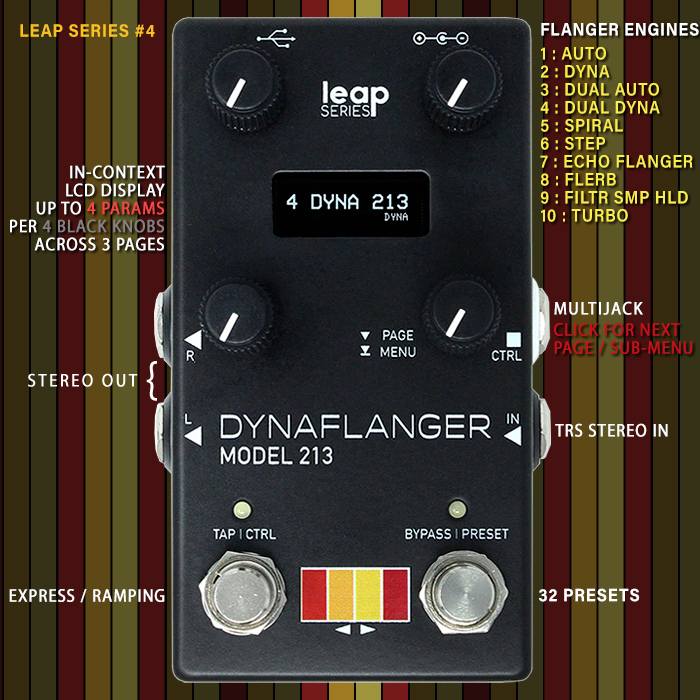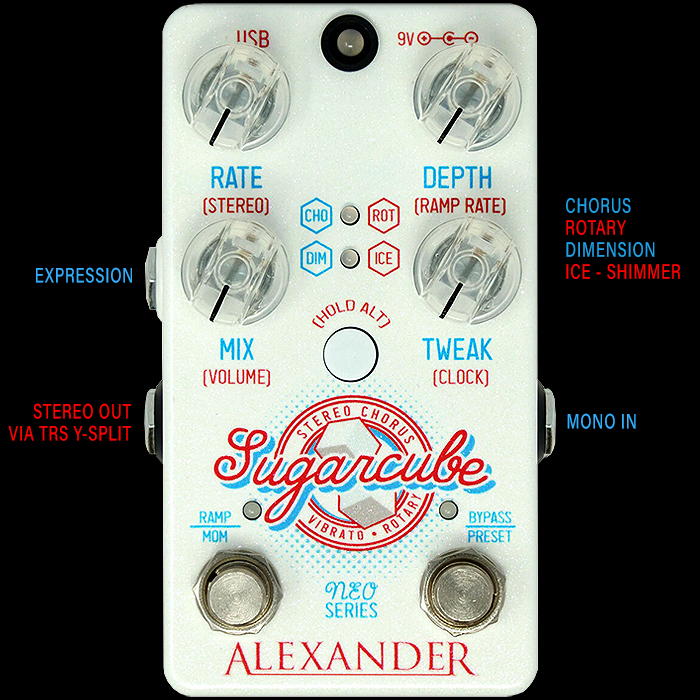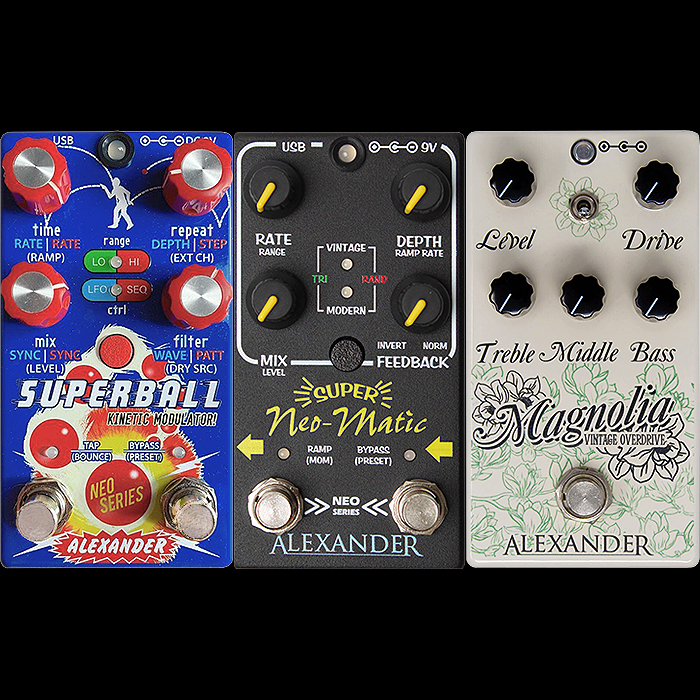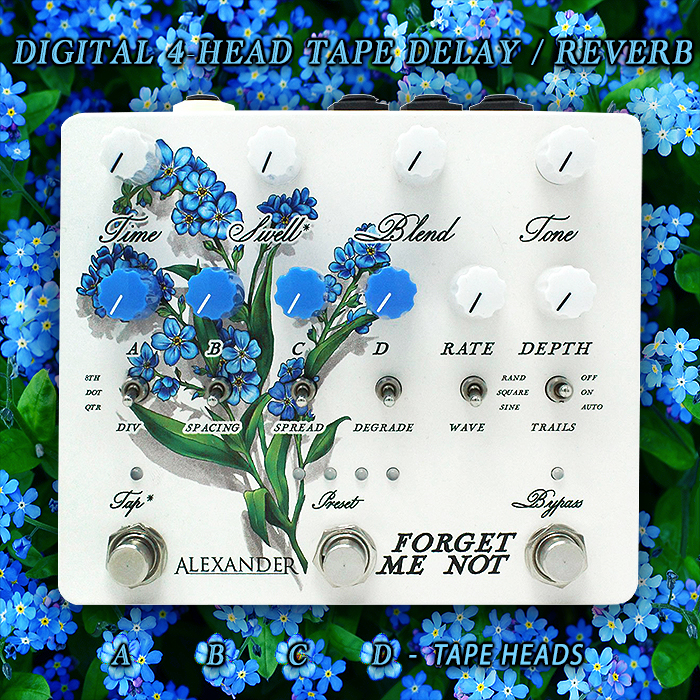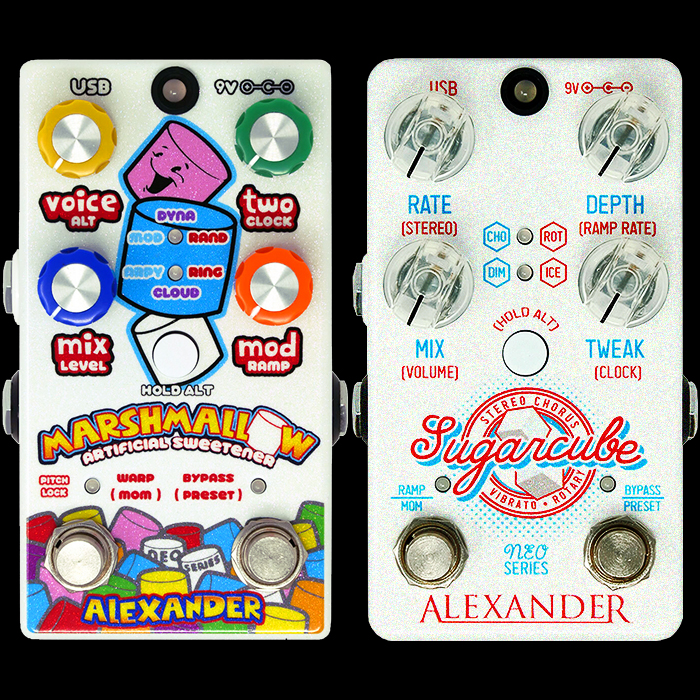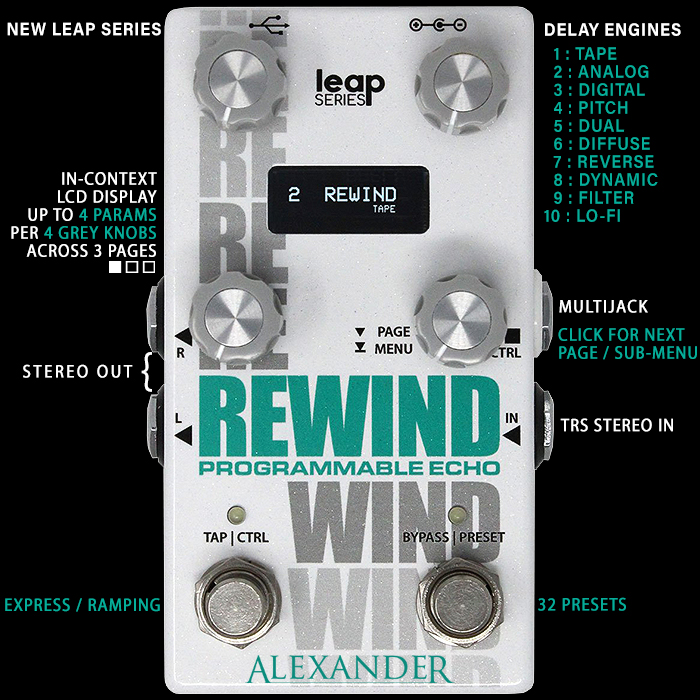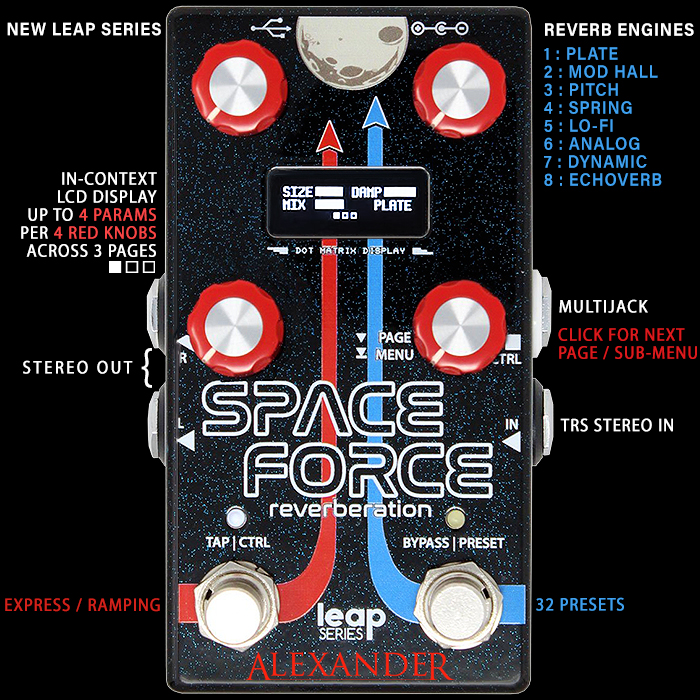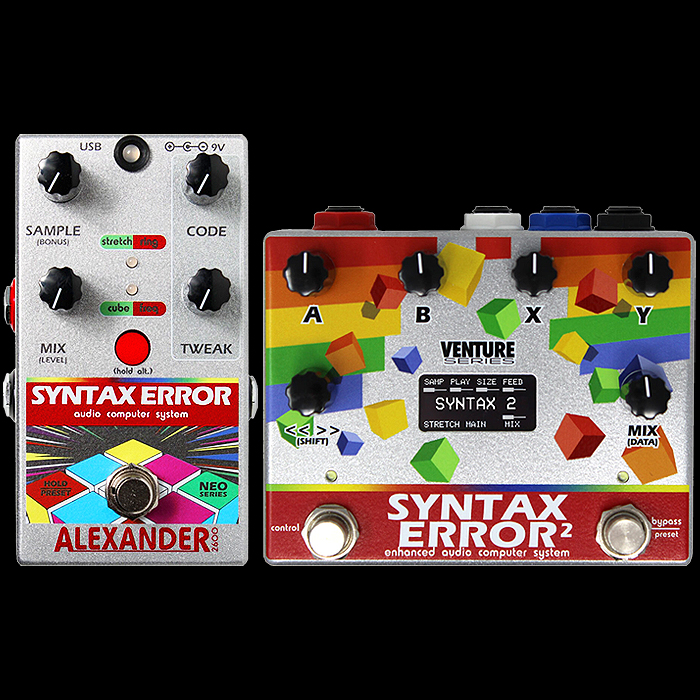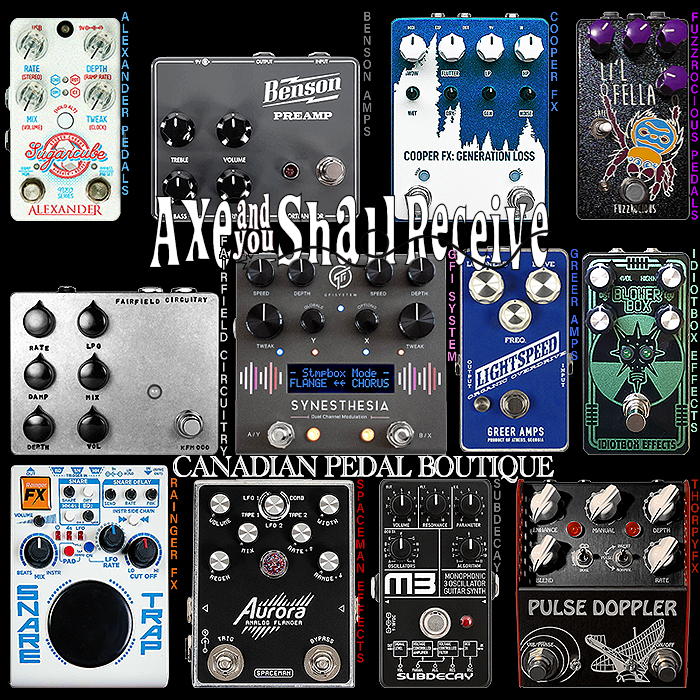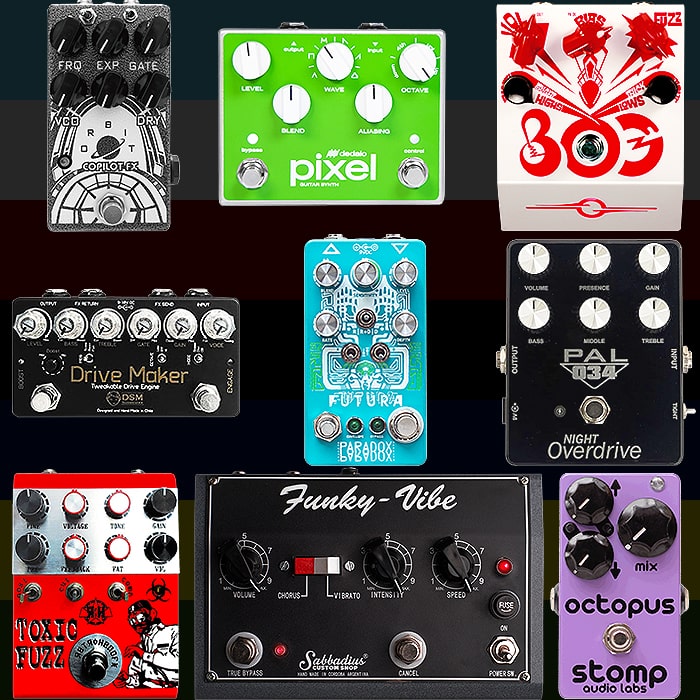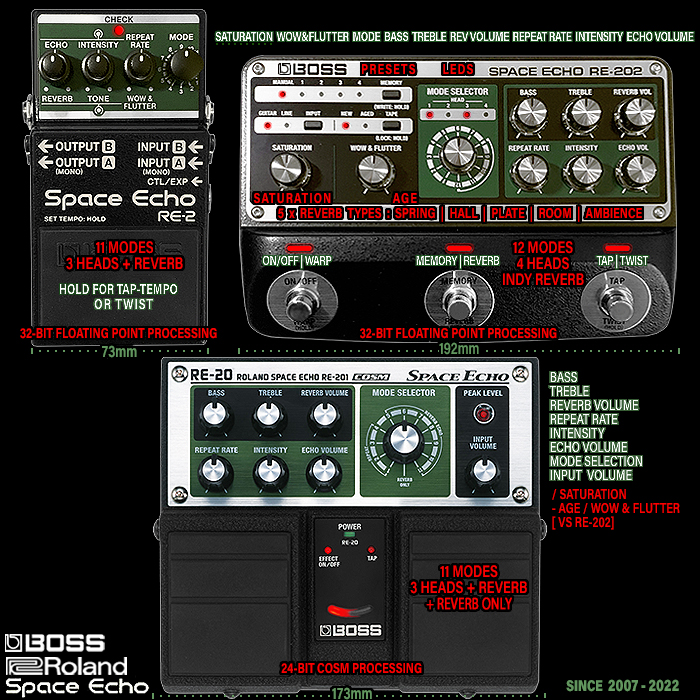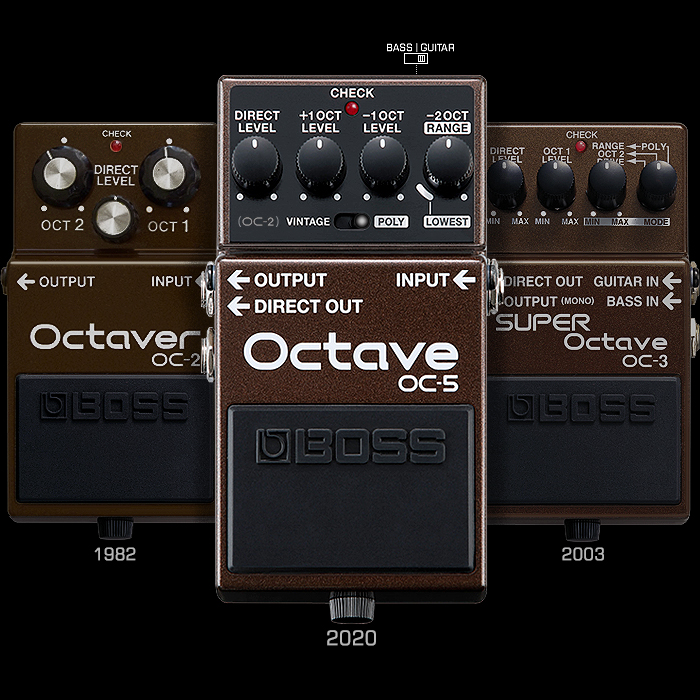Twin Footswitch Alexander Pedals New / NEO and Old
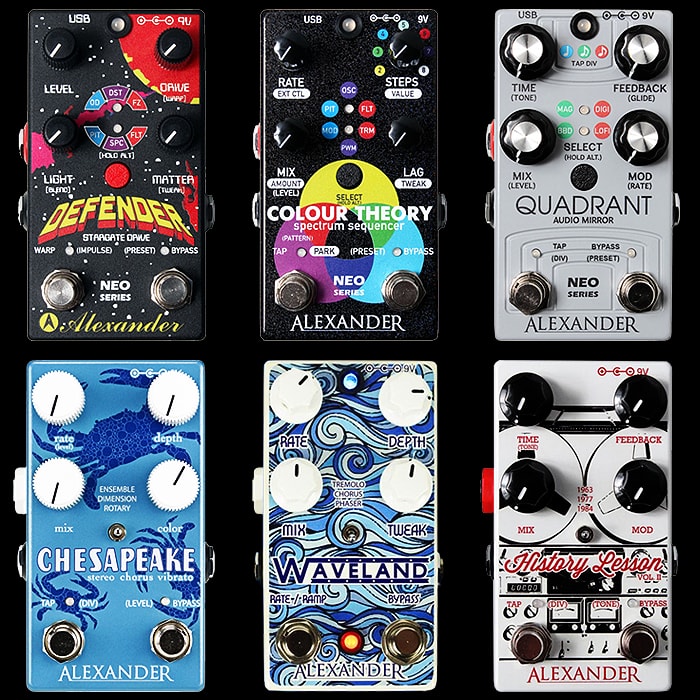
Alexander are one of my favourite pedal-makers even though I have only acquired one of theirs to date (La Calavera Phaser) and even that currently falls secondary to my Chase Bliss Wombtone. Yet I have always admired the imagination and innovation of this mostly digital pedal specialist and have several of these on my infinite wishlist.
Following on from my piece on the Perfect Compact Pedal, the recent NEO range of Alexander Pedals has many of those desired features - including Twin Footswitches, Select/Alt Button, and Presets. Their most recent - the Defender Stargate Drive offers a clever mix of drive and modulation - with 3 core drive flavours, 3 modulations and various alternative controls - also a second footswtich to kick in a sort of Hot Switch (Warp) - much like the Eventide H9 does.
The 3 top row pedals are pretty much brand new while the bottom row features discontinued models - which are still though available in reasonable numbers by way of Reverb.com. I still consider Boss to be ’King of the Chorus’, but the Alexander Chesapeake with TRS Y-Cable Stereo-out is also pretty tasty at that level and warrants consideration, and both the Waveland and History Lesson II have some interesting characteristics to them.
Currently I would say that there were 3 Alexander Pedals I particularly like the look of - the aforementioned Defender, then the Colour Theory 8-Step Modulated Spectrum Sequencer, and Hot Pink 80’s Drive (sold out 2018 limited edition, not pictured).
Here follows a brief overview / demo of each of the pictured pedals, along with the Hot Pink Promo (Note! - see below). Most new Alexander pedals are around the £199 / $199 - price level, while on Reverb.com prices can vary significantly.
Alexander Pedals Defender Stargate Modulated Drive
An all-digital pedal with 3 drive voicings - Overdrive (OD), Distortion (DST) and Fuzz (FZ), you can then apply one of three modulations to each - Polyphonic Octave Shifting (PIT), Space Modulation (SPC) and Resonant Low-pass Filter (FLT). There are 4 dials with an additional Select / Alt button, which controls secondary modes on 3 of the dials. The second 'Warp' footswitch allows you to select a secondary 'Hot Switch' setting per mode - to give you a sort of Accent/Solo Boost style impact. It's for sure an unusual and fairly unique pedal, and sounds pretty good to boot, I'm not quite sure how it fits in with all the dirt pedals I already have in my chain, as well as my exisiting manifold modulation pedals - which include the Chase Bliss modulations, Boss MD-500 and RV-500, Empress EchoSystem and Eventide H9. There's not a whole degree of tweakability to the various drive sounds - so I really like the look of this one, but am still sort of undecided about whether it's one for me.
Alexander Pedals Colour Theory 8-Step Modulated Sequencer
This is probably my most likely next purchase from Alexander, and gives you a sort of Meris Ottobit JR in a smaller enclosure. They're quite different pedals really, but both are sequencers of a sort. The Colour Theory has 6 Effects Modes - Sequenced Pitch Shifter (PIT), Sequenced Digital Time Modulation (MOD), Sequenced Resonsant Filter (FLT), Sequenced Tremolo (TRM), Sequenced Synth Oscillation (OSC), Synthesized Octave Effect (PWM). In many ways I see the Colour Theory as part of a Twin Set with the Defender - they both have quite a lot in common. This is most decidedly a specialist rather than an everyday sort of pedal, but you can have a lot of fun with it.
Alexander Pedals Quadrant Audio Mirror Delay
A digital delay pedal which replaces the older History Lesson, and features 4 delay modes : Magnetic Tape Echo (MAG), Analog Delay (BBD), Digital Delay (DIG), and Lo-fi Delay (LOFI), with quarter divisions, eighths and dotted eighths, tap-tempo footswitch, and alternative/secondary functions on each of the 4 control dials. I am strictly a stereo delays user nowadays, so this pedal does not really figure too much into my current thinking however cool it is, it also has some competition in the shape of Walrus Audio's Arp-87 and JHS's newly compacted Panther Cub.
Alexander Pedals Chesapeake Chorus, Vibrato and Rotary
I actually missed this pedal when I last did a Chorus pedal overview, but this one has some really clever features on it and will certainly be included in my next selection - even though it is now discontinued as such, while there do seem to be a significant number still in circulation. It has a TRS out socket for stereo output via Y-type cable though a single socket. There are three core modes - Ensemble (Single Chorus), Dimension (Dual Opposing Sweep Chorus), and Rotary - with Vibrato flavours at 100% Mix. This pedal has proper second tap-tempo footswitch and essential Level secondary function on the Rate dial. A really intriguing Chorus/Vibrato to go up against the Digitech Ventura Vibe etc. - albeit that has proper stereo ins and outs.
Alexander Pedals Waveland Tremolo, Chorus and Phaser
In essence a multi-oscillation modulation pedal - I was torn between featuring this or the Alexander Equilibrium DLX Tremolo - both are excellent, but this has slightly more utility, albeit not a Harmonic mode. The older Alexander pedals feature 3-way mini toggle switches, versus the fully electronic Select/Alt buttons of the NEO series. In any case there are a number of Waveland and Equilibirum DLX pedals still available on Reverb.com.
Alexander Pedals History Lesson Vol II Delay
This tape-delay looking pedal is actually rather a multi-mode delay with '1963' representing Magnetic Tape Echo, '1977' is Analog Delay, and '1984' is early Digital Delay. The Quadrant Delay Pedal immediately above is an improvement over its predecessor with additional Lo-fi mode, and visible Tap Divisions, so an obvious upgrade really.
Alexander Pedals Hot Pink 80's Drive (not pictured)
I missed out on this limited run special edition which came out earlier in the year and which was really just 50 units as far as I understand. It was supposedly a very slight re-voicing of the previous Princess Clang Royal Overdrive. The Hot Pink has really singing lead tones so evocative of 80's synth-rock. Alexander asked if they should make it a regular feature but I guess not enough of us responded and no further units have appeared as yet, nor are there been any spill-overs on Reverb.com. It has a very slightly unusual 3-band EQ in having a Mids Contour dial rather than the typical Mids shelf or active EQ control. I was unable to find the original Hot Pink promo on YouTube so I've selected a Princess Clang demo, the Hot Pink though sounds slightly more 'sizzling' and electric to my ears - while the range of drive/gain is similar.

